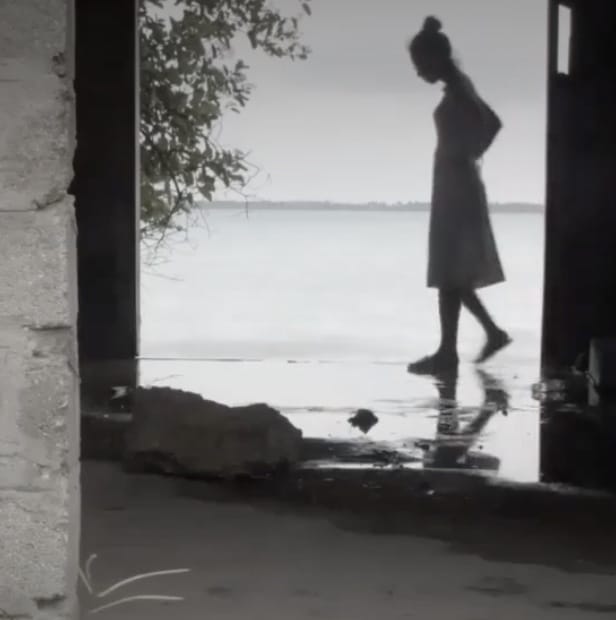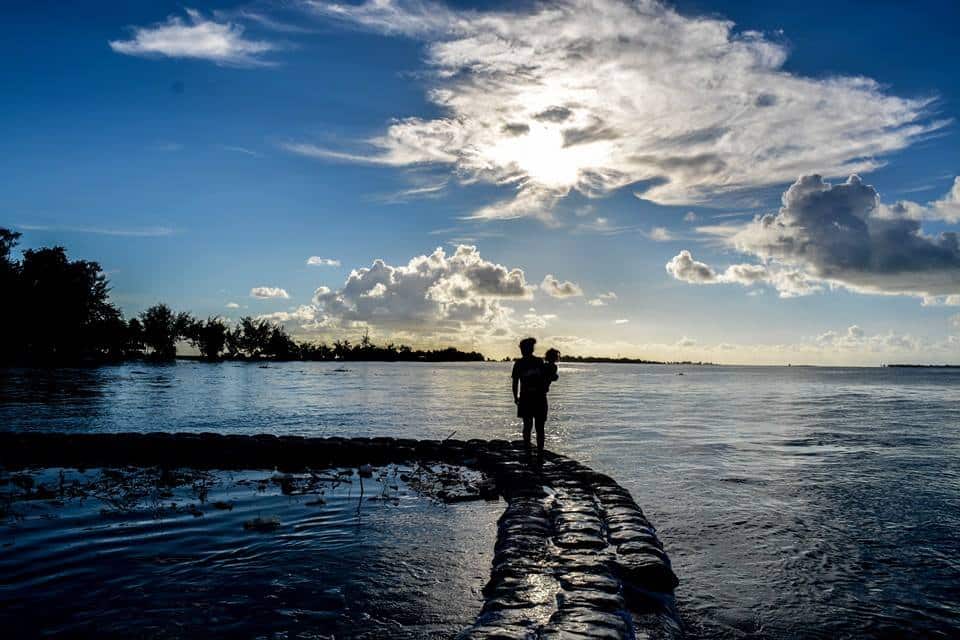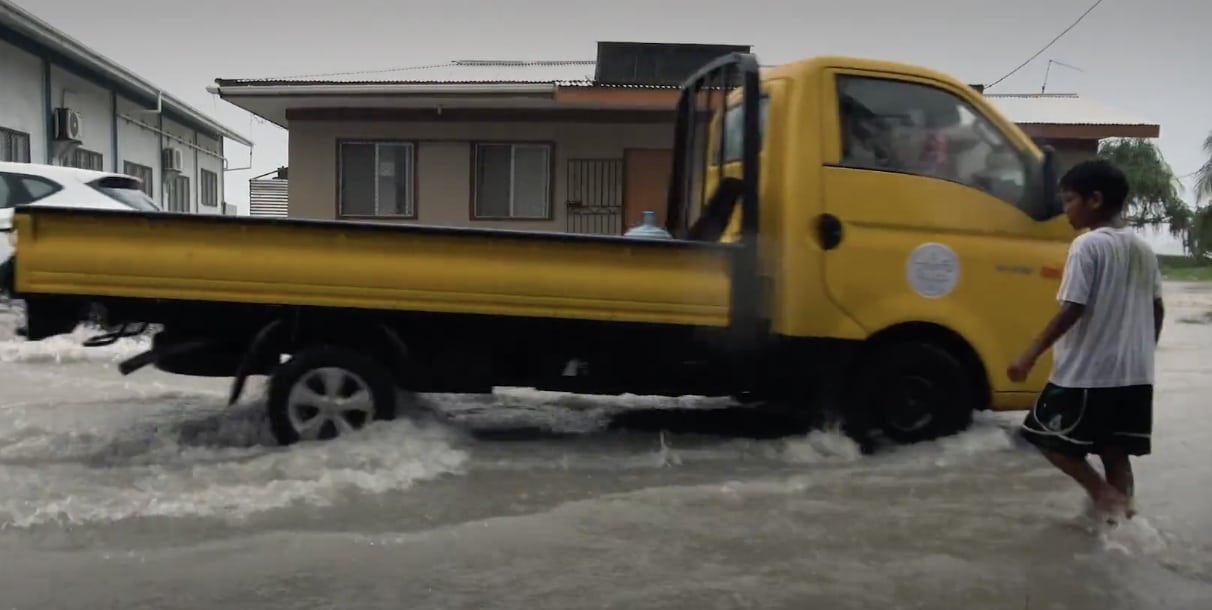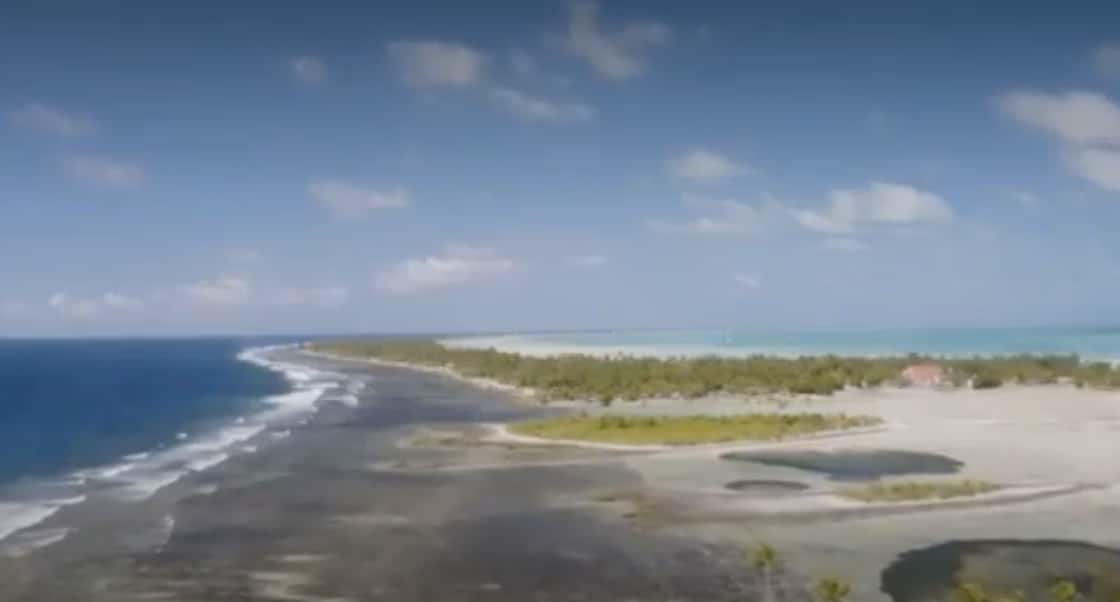Dear Kiribati,
It’s been twenty-two years since I first breathed your hot, salty air, waded in your warm turquoise lagoons, and became instantly intoxicated with the kindness of your people.
All of me—my mind, heart, and soul—fell in love with you. But today, I also fear for you.
I fear that the rest of the world, blinded by its disregard of a changing climate, will not come to know you. They will never see your beauty, your kindness, your katei – the customs and habits of Kiribati. The people of your islands are worthy of everything this world has to offer and more.
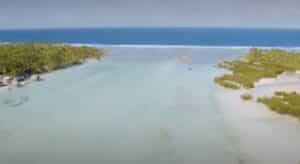
During my first week in your country, I was returning from a celebration when the wind picked up, trees rocked in the wind, and the sea grew rough. Waves rose and crashed deep into the land. Then, the disaster passed, and the sun rose. People emerged from their houses with huts missing walls or roofs. Trees laid atop the mangled corrugated tin roofs. Men collected as much downed foliage as they could, while women and girls wove new thatch. Boys straddled the beams, installing new thatch walls.
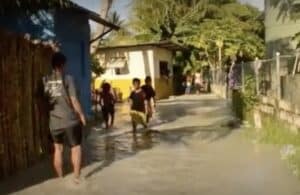
Collectively, the village worked to repair what the sea had destroyed. They did not wait for relief workers; they took collective action to repair and recover TOGETHER. To me, it seemed nothing less than instinctive. At the time, I did not know how this experience would shape my life and turn me into an advocate for the future of endangered nations worldwide.
When I returned from Peace Corps service in Kiribati, America seemed like a different place. It was no longer my home—not the home I left behind in my village. My friends and family were happy to see me, but I couldn’t relate to them as I did before I went to Kiribati. They talked about movies, clothes, jobs, and money. Absentmindedly, I just stared in amazement at the number of material things around me.
My American friends and family were all about going—going to work, going to school, going to appointments. Most of their comings and goings seemed to somehow revolve around making or spending money. It was a far cry from Kiribati, where living revolved around people being kind to each other. Even sleeping in a bed was difficult for me when I returned to America. I hadn’t slept on something soft for two years. My body seemed to freeze when temperatures dropped below 80 degrees. And getting a drink of water was just too simple! I merely pushed a button to drink fresh, healthy water! At home in Kiribati, the water had to be boiled, filtered, and cooled overnight.
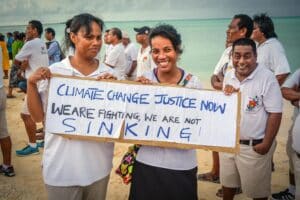
Just one year after returning from the Peace Corps, I began to understand that my last day of service in Kiribati was my first day of commitment to the nation. I returned to the islands for academic research several times over the following decades. With each return, the days felt hotter, beaches shrank, oceanic tides grew higher, and storms grew stronger. During king tides (about a foot higher than normal), fish swam in the streets and water engulfed homes. On other trips, the increasingly prolonged droughts caused dust storms to blow across islands. They were becoming narrow strips of dried land in the middle of the ocean.
Everything except the belief in te katei ni Kiribati has changed. The backbone of Kiribati’s society remained communal. People understood that the group has higher status than the individual, to ensure mutual survival. Pacific peoples have held to these values for millennia. In light of climate change, those of us who live in the developed world must learn to embrace a more communal perspective.
Kiribati, your gift of human compassion is the only thing that will save all of us. You have spread the message that it is not too late to change. We have no choice except to transform our greed into generosity, our hatred into love and compassion.
Dear world, I believe also in you, as I believe in Kiribati. If the climate must change, so must we.


